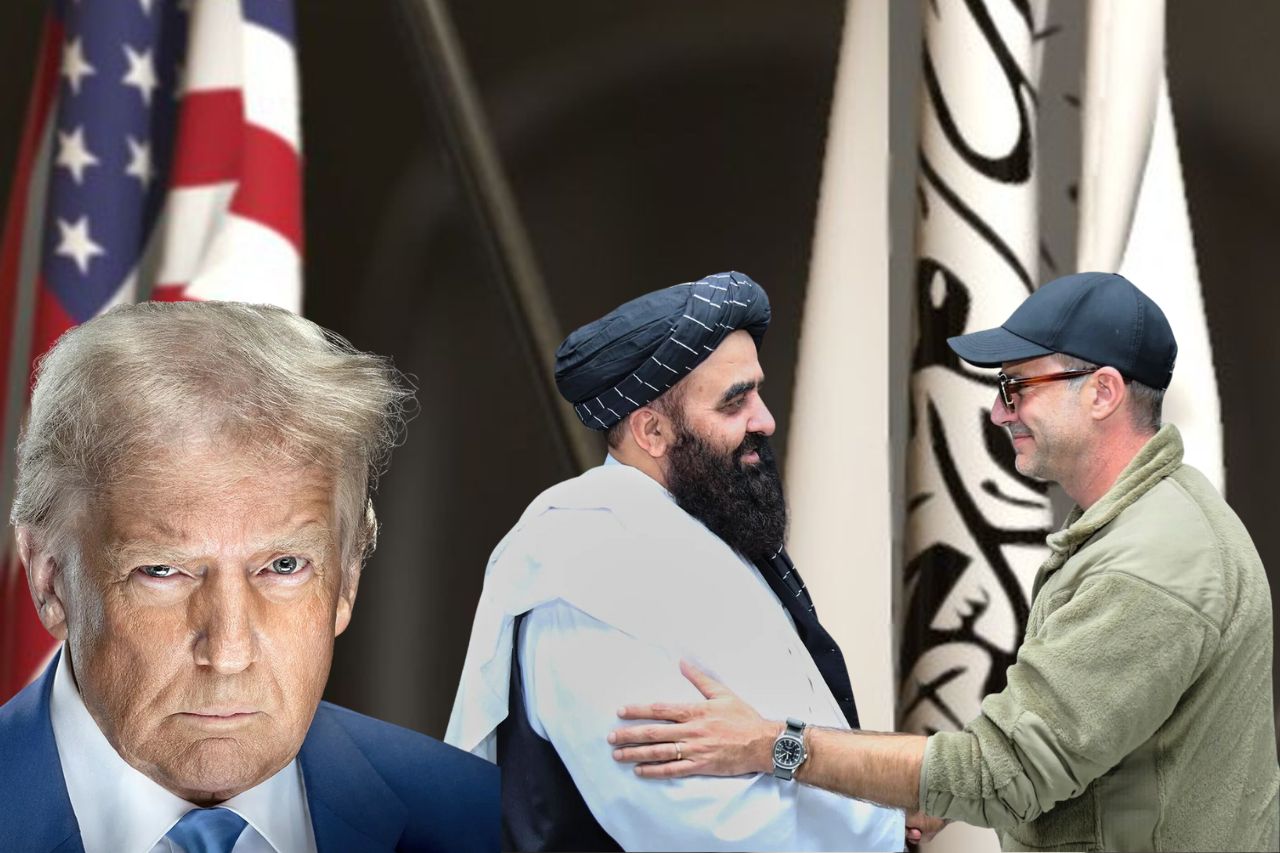Trump-Taliban Talks Signal Fragile Reset In US-Afghanistan Relations Amid Prisoner Swap Push

Talks in Kabul between US officials and Taliban leaders revive hopes of a prisoner exchange, though mistrust continues to cloud the fragile dialogue. Image courtesy RNA
United States (US)-Afghanistan relations under the Taliban have entered a delicate new phase, with recent talks in Kabul centering on a possible prisoner exchange.
The meeting, held on September 13, 2025, between US President Donald Trump’s special envoy for hostage affairs, Adam Boehler, and Taliban Foreign Minister Amir Khan Muttaqi, marks the most direct engagement between Washington and the Taliban since Trump returned to office earlier this year.
The Taliban claimed that both sides agreed on a framework for exchanging detainees, though the details remain vague. The US has not confirmed that a deal has been finalised. Secretary of State Marco Rubio stated that Boehler’s visit was meant to “explore what’s possible,” emphasising that any final decision would rest with the president.
Is the prisoner swap a diplomatic opening?
For the Taliban, an agreement on prisoners offers a rare opportunity to build diplomatic credibility. Since seizing power in August 2021, the group has struggled to win international legitimacy, with Russia being the only major power to formally recognise its government. By pushing for a prisoner swap, the Taliban are signaling that they are willing to negotiate with Washington on sensitive bilateral issues.
On the US side, the priority remains securing the release of detained Americans. Among the most high-profile cases is Mahmood Habibi, the former Afghan aviation chief, who disappeared in August 2022. His family alleges that the Taliban handed him over to al-Qaeda, while the Taliban denies holding him.
Washington has put forward a $5 million reward for his safe return. Another American, George Glezmann, was freed in March during Boehler’s earlier Kabul visit, marking the third US citizen released since Trump’s return to power.
What are the strategic motives on both sides?
For Trump, who has made hostage diplomacy a visible element of his foreign policy, the prisoner issue provides a way to re-engage in Afghanistan without extending recognition to the Taliban. The administration has been cautious in framing these talks as pragmatic, issue-based negotiations rather than a broader normalisation of ties.
For the Taliban, the talks come at a time of mounting domestic pressures. Afghanistan continues to face economic collapse, international isolation, and recurrent humanitarian crises. Just weeks before the meeting, a devastating earthquake in Kunar province killed more than 2,200 people and injured thousands more.
International aid remains limited due to sanctions and the Taliban’s human rights record, particularly its curbs on women’s freedoms.
By engaging with the US on detainee issues, the Taliban are hoping to gradually ease their pariah status and open doors for investment and aid. Their Foreign Ministry statement highlighted “bilateral relations” and “investment opportunities” as central themes of the Kabul talks.
Why is this an uneasy relationship?
Yet the broader relationship remains fraught. The Taliban have sharply criticised Trump’s recent travel ban on Afghan nationals, which they view as collective punishment. Washington, meanwhile, continues to withhold recognition of the Taliban as Afghanistan’s legitimate rulers and maintains sanctions that restrict the group’s access to global financial systems.
The presence of Zalmay Khalilzad, the former US envoy who brokered the 2020 Doha Agreement with the Taliban, at the Kabul meeting underscores the delicate continuity in Washington’s Afghanistan policy. However, his silence after the talks reflects the sensitivity of the negotiations.
Is this limited progress with high stakes?
While the prisoner swap discussions mark a notable step forward, they highlight the transactional nature of current US-Taliban relations. Both sides appear to view these talks less as a path toward reconciliation and more as a pragmatic arrangement to address immediate concerns.
For Washington, the goal is straightforward: secure the release of detained Americans without offering political recognition to the Taliban. For Kabul’s rulers, the aim is broader: use these negotiations as leverage to improve their international standing and attract much-needed economic relief.
The coming weeks will show whether this fragile opening can evolve into a pattern of sustained engagement. For now, the possibility of a prisoner swap has given US-Afghanistan relations a rare moment of cautious optimism, even as distrust and deep disagreements persist.







